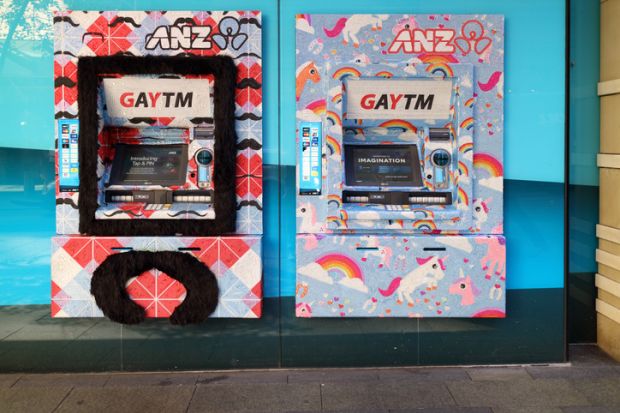An Australian forum on tensions between diversity and academic freedom had a rocky start, with key panellists pulling out and critics damning the event as a showpiece of the “UK fascista left”.
The University of Melbourne seminar was organised to address questions raised by the UK’s Diversity Champions Programme, run by the charity Stonewall. Half a dozen universities have cut ties with the scheme – joining employers including the BBC, Channel 4 and the UK’s Equality and Human Rights Commission – over fears that it curtails debate and academic freedom.
Australia’s version of the scheme, Pride in Diversity, is run by community organisation Acon. The Melbourne forum aimed to initiate a “timely and balanced national conversation about the benefits, risks and tensions” of such initiatives, according to the university’s website.
“Critics argue that the initiatives embed contested facts and values into policies, compromise public bodies’ independence and impartiality and facilitate backdoor political lobbying,” the site says. “Defenders counter that the programme and index simply promote best practice in policy and help employers to foster much-needed inclusion, support and understanding.”
The forum was to feature eight panellists – four of the schemes’ supporters and four sceptics. They included high-profile combatants on either side, including former University of Sussex philosopher Kathleen Stock and University of Sheffield sociologist Sally Hines.
But Professor Hines pulled out several days before the 4 October forum. So did Nicki Elkin, who oversees Acon’s Pride programmes, and ABC broadcaster Paul Barclay, who had agreed to moderate the event.
Two weeks earlier, Mr Barclay had expressed enthusiasm for the forum and vowed to record it for his Big Ideas radio show. “Can’t wait for this one,” he tweeted. “Great line-up, terrific topic. See you there!”
Times Higher Education’s requests for comment from Mr Barclay and Acon went unanswered.
Melbourne gender studies scholar Hannah McCann said the broadcast of the “TERF [trans-exclusionary radical feminist] debate” should be reconsidered. “If people pull out of your event once they realise the premise of it I dare say you’ve got a significant legitimacy problem,” she tweeted.
Professor Hines tweeted that she had withdrawn from the event because it involved “high-profile UK anti-trans” speakers. “I was unaware of their involvement when I agreed to take part and didn’t grasp that this was being organised as a debate with a clear for and against trans inclusion agenda.”
Professor Hines said she had stopped sharing stages with “anti-trans activists” because of their “hate speech”. She said events “structured through the format of debate” were unproductive. “There is a huge problem with presenting trans-exclusionary discourse as simply another viewpoint.”
Event organiser Cordelia Fine acknowledged the topic as “painful and offensive” for some. But she said divisions were amplified and “suboptimal” policies became entrenched when people were unable “or too fearful” to talk through disagreements or misunderstandings in good faith.
“When this state of affairs holds even within universities, it means that research lacks the claim to objectivity that comes from having been exposed to a wide range of perspectives and criticism,” said Professor Fine, a Melbourne philosopher. “This matters for all stakeholders in these disagreements.”
Professor Fine said it was disappointing that the event would not be “as balanced as intended”, after efforts to “rebalance” the panel proved unsuccessful. She said she admired the remaining panellists “for being willing to do what has so rarely been achieved in this…domain – a civilised and informed discussion across different viewpoints and perspectives”.




